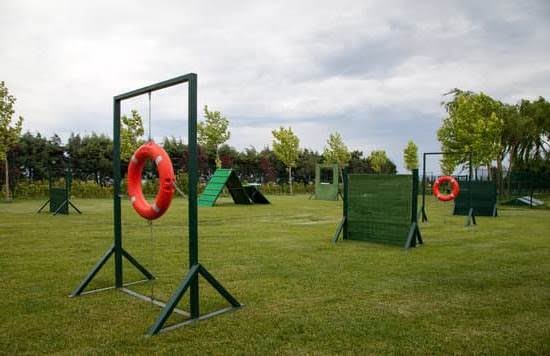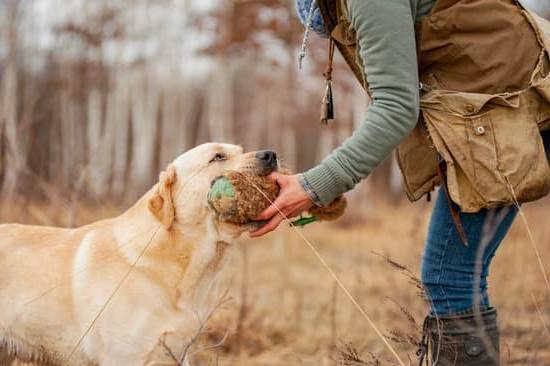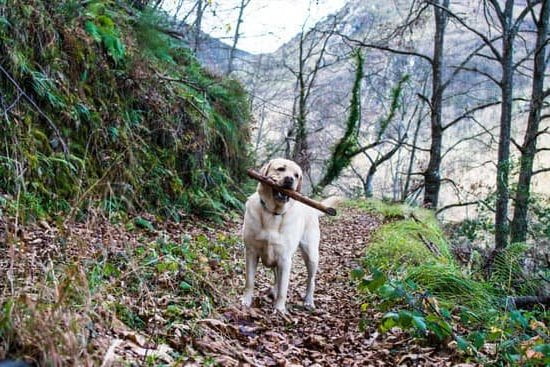Focus on Different Breeds
The age of potty training completion depends on the breed, size and individual personality of the dog. Generally, smaller dogs can be potty trained earlier than larger dogs because they tend to have shorter attention spans and are physically able to take frequent trips outdoors. Most owners report that their puppies are completely potty trained between four months and six months. Challenges with potty training breeds such as Hounds, Retrievers and Bulldogs may require a longer commitment to teach them correct habits and routines for success.
Regarding temperament, some dog breeds are especially sensitive to changes in their environment, making them slower to pick up cues from their family members when it comes to housebreaking. For instance, Greyhounds may need more patience and persuasion to learn rules since they are prone to wander away and ignore commands if no proper reward is given. Likewise, Terriers often require extra reinforcement during potty training as they may be too distractible or simply turn off in response to vocal scolding. To effectively housebreak thesedogs, owners should opt for positive reinforcement-based techniques that rely on rewards such as verbal praise, treats or toys whenever appropriate behaviors are observed.
As a result of their unique personalities, some breeds can be quicker or slower when it comes to potty training. It is important for owners of these breeds in particular to recognize signs of progress as well as any areas that need further continuous improvement in order facilitate a successful housebreaking experience overall.
Crate Training
Crate training is a popular potty training method because it sets limits and boundaries for your pet, while providing them with privacy and safety. The idea behind crate training is that dogs are naturally clean animals, so if the crate is not too large for them to move around comfortably, and if their food, water, and bedding are provided, they are likely to hold their waste until they can go outside.
Advantages of Crate Training include providing a great deal of structure when teaching alone isn’t resonating with your pup. Also, the fact that not much extra effort or equipment needs to be bought makes this method cost-effective and relatively straightforward.
Disadvantages of Crate Training include the potential for anxiety in puppies left alone in an unfamiliar place and triggering fear behaviors as well as repetitive barks or whining – ultimately leading to more work for you! Additionally, there may also be lack of stimulation due to an overall lack of freedom during much of the day.
Ultimately it’s important to pay attention to how your pup responds to the crate training process before determining how long it should take for your dog to be fully potty trained. A good rule of thumb is approximately 6 months from puppyhood – but keep in mind this can depend on the age your dog was when you began training and their individual personality type.
Positive Reinforcement
Positive reinforcement is essential for successful potty training for your pup. Consistent use of positive reinforcement will ensure that your dog understands what behaviors you do and do not want him to perform when it comes to potty training. Positive reinforcement includes praising the desired action, offering a treat or other reward, or simply offering a pat on the head or scratch behind the ears. Each time your pup successfully goes to the bathroom in his designated areas, he should be praised and rewarded for a job well done. This will reinforce proper behavior and create a positive association with going potty in the right areas. Additionally, distractions and activities can help to condition your dog to recognize when he needs to go outside for potty breaks since dogs tend to start showing signs such as sniffing the floor or walking in circles before needing to relieve themselves. When you catch him exhibiting these behaviors, gently lead him outside without scolding or punishing him – this reinforces that going outside is the correct behavior and allows them to learn from their mistakes without feeling shamed. Generally most dogs are fully potty trained within two weeks of consistent positive reinforcement practices; however, every pup learns at their own pace so be sure to be patient but firm in your techniques throughout the process.
Setbacks
Common setbacks during potty training can include puppies not paying attention and forgetting their commands, not being consistent with the rules and commands given during potty training, poor timing of rewards and/or punishments, or disruption in routine. It can take multiple forms of reinforcement to fully train a puppy. Consistency is an important part of how much progress is made when it comes to potty training.
It is important to be mindful that if there are disruptions in routine due to travel, illness, change in diet, etc., this can cause regression which delays the training process. Puppies do not understand interruptions in routines as they are still learning. To help with instances like these it is beneficial to create a new routine that your puppy will become familiar with so they know where and when its appropriate to go potty even if you have been away for an extended period of time. As your puppy grows older make sure that there are boundaries set for them such as providing them specific areas their allowed to roam within the home without needing direct supervision – this will give them ample opportunity for success in going potty when needed without always needing you around.
For implement consistency into the pup’s learning environment its important that all members of the household provide clear cues and stick with these same markers while rewarding desired behaviors immediately afterwards. This helps the puppy become more familiar with what will happen after following specific commands and encourages further progression over any setbacks that may stall progress during any points throughout the training process. Generally speaking most puppies should be 100% potty trained anywhere between 8-16 weeks depending on how quickly they learn cues and commands you teach them.

Welcome to the blog! I am a professional dog trainer and have been working with dogs for many years. In this blog, I will be discussing various topics related to dog training, including tips, tricks, and advice. I hope you find this information helpful and informative. Thanks for reading!





